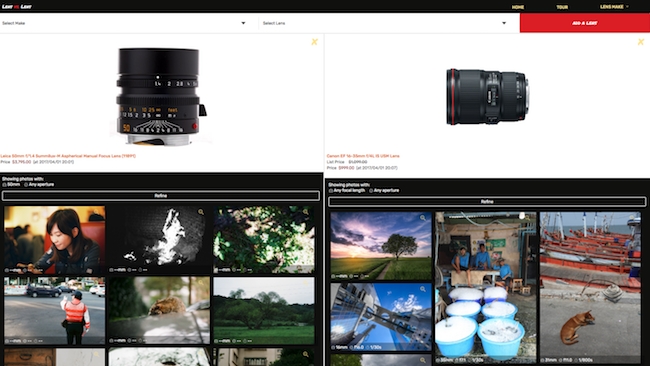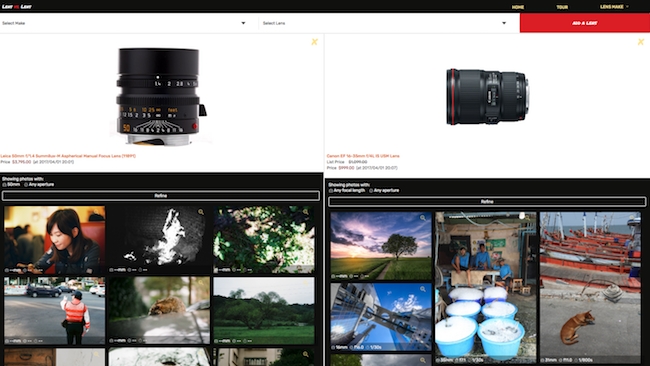
 $3795 vs $999, but which one's right for you?
$3795 vs $999, but which one's right for you?
Before you go out and pay $300-500 or more on a new lens, wouldn't it help to know what kind of pictures that lens will actually give you? That's where Lens vs. Lens, a website that uses photos from Flickr to show you how lenses perform, comes in handy.
Adding lenses to your camera quiver is usually the next thing that you want to do after you finally invest in that DSLR camera body. No longer content on the “nifty fifty” or that kit lens that came with it, growing into a longer telephoto or wide-angle prime can really add depth and options to your digital photography. But before you go out and pay $300-500 or more on a new lens, it would help to know what kind of pictures that lens will actually give you. Does it have a crop factor? How’s the depth-of-field? Is it fast? Those questions are best answered before you buy a lens, not after. That’s where a new website called Lens vs. Lens comes in handy, and it uses photos from Flickr to show you how lenses perform.
The site couldn’t be simpler to use — and it delivers. After a brief tour to tell you what the site is about and how you can use it, all you have to do is select the make and model lens you want, add a second piece of glass, and wait for the results. Lens vs. Lens’s search algorithm will then comb the metadata of images that have been posted on Flickr and provide visual results on what kind of lens you can use with it. You then go and refine your search parameters by honing in on focal length and even aperture. Then you can click on the image, see what camera was used, the aperture and shutter settings — the works. There’s also a magnifying glass that will allow you to check how much grain or noise is in the image, or how soft the focus is.
Lens vs. Lens will also help you to hone in on what camera platform you may want to choose, as you can compare platforms by the images their lenses take. Lenses available for comparison include Canon, Nikon, Olympus, Fuji, Leica, and Sony. The one thing I would like, which it doesn’t really include, though, is the addition of third-party lenses like Sigma, Rokinon, Tamron and others. Clearly, there are images taken with these various lenses on Flickr, so it would simply be a matter of whether the website designers at Lens vs. Lens want to add these lens choices to the search algorithm.
But even although its database only contains main lens manufacturers, it’s still a great place to start doing your research when looking to buy a new lens. Check it out at http://lensvslens.com
Tags: Production


Comments